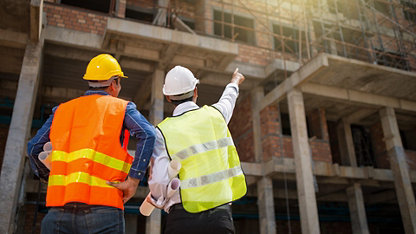RICS 2024 Sustainability Report: Urgent Action needed to decarbonise UK’s built environment by 2050 target
- Level of commitment to green building practices ‘lacking’ over the last 12 months
- High costs of green practices cited as a barrier to sustainable building
- However, Biodiversity tracking on projects rises, spurred by UK’s net gain legislation
The Royal Institution of Chartered Surveyors (RICS), has today published its global sustainability report for 2024. The publication outlines the state of the world's green and sustainable real estate, while also highlighting essential policy recommendations, to help drive the UK’s built environment sector towards decarbonisation.
While the UK has made some strides in carbon reduction across buildings and infrastructure, RICS stresses in the report that further action is needed to meet national and global climate goals.
To accelerate progress, RICS advocates for a comprehensive sustainability approach that includes evidence-based targets, mandatory carbon assessments (such as WLCA) for all new projects, and enhanced training for built environment professionals. The report also recommends that policymakers set clear, national targets to aid decarbonisation, alongside the enforcement of minimum energy performance standards, building codes, and climate resilience benchmarks.
Looking at factors deemed to be holding back the industry, in the UK, 31% of respondents state that a lack of government incentives and policy uncertainty are a main barrier preventing the widespread adoption of sustainable practices across the industry.
Other factors cited were high initial costs of green building practices and the high costs of sustainable materials. However, on a more positive note, 22% of respondents stated that they measure biodiversity on all projects, while 31% measure it on more than 50% of projects, which are some of the highest figures globally.
These figures could also increase further in the coming years due to the UK’s recent biodiversity net gain legislation. This legislation requires developers to improve the biodiversity of their sites by a minimum of 10%. The regulation became mandatory in February 2024 and is expected to extend to include major infrastructure projects in 2025.To support Government and the industry's shift toward sustainability, RICS standards, including our Whole Life Carbon Assessment (WLCA) and Retrofit standards, provide valuable frameworks to assist government efforts. These standards align with national goals by offering practical pathways for achieving sustainable outcomes.
Additionally, the recently launched ‘Net Zero Carbon Building Standard’ builds on this, creating clear guidelines to complement government initiatives and bolster the transition to net zero.
RICS President, Tina Paillet, commented:
"Last year, I described the RICS Sustainability Report as a wake-up call to our industry, pointing out that our progress on sustainability was lagging behind what is required. Despite that, I expressed confidence that the 2050 net-zero target was still within reach, if we pursued it wholeheartedly. This year’s report, however, suggests that the level of commitment necessary to meet these goals is still lacking, presenting a mixed but underwhelming picture overall.
"Credible policy interventions are essential, and regulation remains a significant factor driving green real estate investment and shaping construction practices. RICS will continue to champion effective regulation and the adoption of common standards across jurisdictions to simplify processes, ensure a level playing field, and ultimately drive meaningful progress on climate goals."
Senior Public Affairs & Policy Officer, Robert Toomey, commented:
“RICS continues to publish relevant standards related to sustainability and decarbonisation, for both our members and the wider industry. As such it’s positive to see the publication of the ‘Net Zero Carbon Building Standard’, which utilises our Whole Life Carbon Assessment Standard, as well as the recent launch of the Residential Retrofit Standard in October.
“However, while there have been some successes, such as increases to biodiversity measurement; overall, we are seeing a stagnation across the sector.
“The environment that our industry operates in is set to become more uncertain, with increased global political instability and continuing economic challenges. Nevertheless, a greater resolve is needed by business, government and industry to ensure these challenges are met”.














